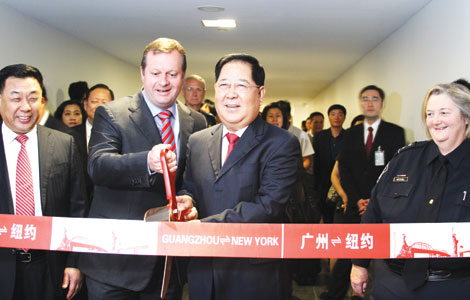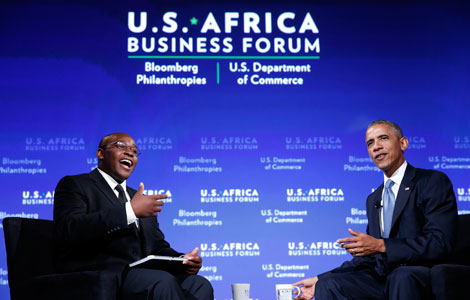Real names now required for WeChat and other IMS
Updated: 2014-08-07 16:18
By Cao Yin (chinadaily.com.cn)
|
||||||||
Users of instant messaging tools, including WeChat, must in future register with their real names and unlicensed public accounts are banned from publishing or forwarding political news, China's top cyber watchdog ordered on Thursday.
The State Internet Information Office listed 10 regulations to tighten management of instant messaging in a bid to clean up the online environment and rein in rumormongers.
Only public accounts operated by news agencies and news websites, some non-journalism institutes with online news and information service licenses, can publish and forward political news. Other public accounts must not publish or forward political news without authorization.
WeChat had 5.8 million public accounts as of last month, bianews.com reported, citing Zeng Ming, a WeChat management official.
Potential users of WeChat will only receive an account after their real identities are verified. Users can still use online nicknames when using instant messaging tools, according to the new rule.
The office stressed that the privacy of users can be protected when registering their real names.
Rules include that providers of instant messaging services shall be responsible for their safe operation, protect users' information and citizens' privacy, be subject to public supervision and handle illegal information in a timely manner.
Meanwhile, regulators will warn violators, limit their rights to release information, suspend renewals or even close their accounts, based on the degree of the violation.
The rule on real name registration, which has been effective since Thursday, has been applauded by Internet users and experts.
Shi Shusi, a popular micro-blogger and WeChat user, praised the real-name registration, saying it is necessary to give true identities when opening a bank account or shopping online.
Li Yuxiao, director of the Institute of Internet Governance and Law under Beijing University of Posts and Telecommunications, agreed with Shi, but said the real-name system is no cure-all for the online environment.
"We are troubled with some rumors on instant messaging tools, especially on WeChat where most friends believe what they see and the impact of the rumors is sometimes bigger than other platforms, such as micro blogs," Li said.
The real-name system is a must, he added, but cleaning up cyberspace and reducing misinformation also requires government action and self-discipline from users.
According to the new rule, online service providers should ask users to supply real identities if they want online services on mobile phones. The mandate is in line with the Internet information protection regulation made by the top legislature's standing committee.
Previous users who were not required to provide authentic information will be encouraged to join real-name systems, but the watchdog said the specific method for doing so would depend on the application producers and operators.
Guo Kaitian, vice-president of Tencent, welcomed the real-name system. He said his team spends too much time identifying and removing fake information and reports from users.
"Paying and taking taxis via our application will become easier and quicker for users who provide real identities," Guo said. "For those reporting alleged rumors, we'll give a reply and solution within seven days."
It is also hoped the real-name system deters those who spread illegal information on instant messaging tools, as well as the promotion of violence, terrorism and pornography.
- China to clean up instant messaging services
- WeChat loses shine amid information overload
- WeChat cash gifts become virtual reality
- China bolsters government presence on WeChat
- Beijing court uses WeChat to solve labor disputes
- Chinese anti-porn office creates WeChat account
- China convicts two online rumor-mongers
- 9 punished for spreading H7N9 rumor online

 Grand opening
Grand opening
 China Southern launches Guangzhou-New York service
China Southern launches Guangzhou-New York service
 Chinese cadets' numbers rise in US military academies
Chinese cadets' numbers rise in US military academies
 US funded Chinese fashion website targets a new customer segment
US funded Chinese fashion website targets a new customer segment
 'Dr Tea' takes on the US
'Dr Tea' takes on the US
 NYC spurs small business
NYC spurs small business
 US-Africa summit starts with development fora
US-Africa summit starts with development fora
 Two double-decker buses collide in New York
Two double-decker buses collide in New York
Most Viewed
Editor's Picks

|

|

|

|

|

|
Today's Top News
China Southern's new NYC flight 'a gift'
Compromise called for in Sino-US ties
Firms are asked to cooperate antitrust probes
Real names now required for WeChat and other IMS
Rescuers race to save lives as quake toll nears 600
589 dead as strong quake jolts SW China
China to punish Chrysler, Audi for anti-trust violations
US interest in Africa grows
US Weekly

|

|







